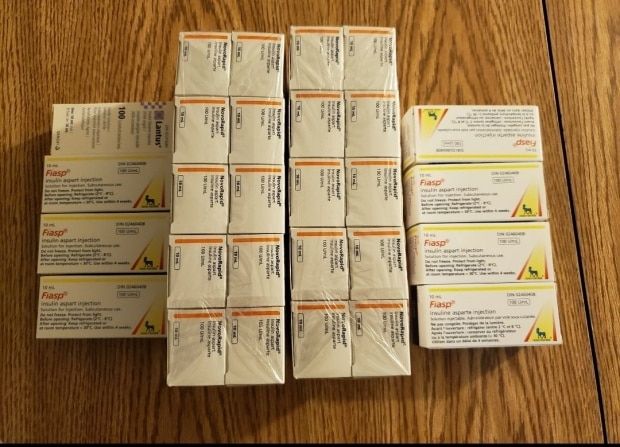When Travis Paulson drove from his home in northern Minnesota to the Canadian border last month, he thought he’d have little trouble crossing over to buy his insulin.
Paulson, a Type 1 diabetic, has made the trip many times for himself and others as the price of the lifesaving drug has skyrocketed in the United States over the last decade. A vial in Canada costs roughly $25 US, a fraction of the $350 to $400 he would be charged in his home country.
Paulson called Canada Border Services ahead of time to see if he’d still be able to come into Canada. Travel between the two countries has been restricted during the COVID-19 pandemic, but Paulson said he was told he could still make the trip if he only went to the pharmacy and came back the same day.
But when he arrived at the border near Fort Frances, Ont., he said he was told there had been a policy change that very morning — and he couldn’t come into Canada because his trip was not deemed essential.
“It’s devastating because your life depends on it. You’re literally being denied the air that you need to breathe,” said Paulson, the director of the diabetes organization Northern Minnesota Advocacy Group.
“Every few hours you need it, every day. And that you might not be able to get it, I would say it’s a little terrifying.”
Many Americans rely on going up north to buy insulin, where it is roughly a tenth of the price. Canada’s Patented Medicine Prices Review Board, a federal agency that establishes the maximum price that can be charged for patented drugs, keeps the prices affordable.
But the COVID-19 border restrictions have meant that option is no longer available.
While some pharmaceutical companies in the U.S. are offering programs for cheaper insulin during the pandemic, advocates say still not enough is being done to make it affordable.
A spokesperson for the Canada Border Services Agency said Americans may be allowed to enter the country to purchase medications, but the agency offers little clarity on who will be allowed in and when.
“Entry to Canada is decided on a case-by-case basis and based on the information made available to the border services officer at the time of entry,” spokesperson Judith Gadbois-St-Cyr said in an email.
Until at least June 21, there is a temporary restriction on all non-essential travel between Canada and the U.S. That could be further prolonged if deemed necessary, Gadbois-St-Cyr said.
































